Working Group 1: Present and Future Data ‐ Visibility and Access (L0‐L2)
Co-Chairs:
- Shin-Ichi Sobue (JAXA)
- Guennadi Kroupnik (CSA)
- Gerald Bawden (NASA)
- Nuno Miranda (ESA)
Working Group 1 was established during the first workshop of ICGS-SAR at the California Institute of Technology in 2018, to understand the issues related to data discovery and data access, as well as to discuss and coordinate this topic with concrete examples.
WG-1 found that all governmental agencies flying spaceborne SAR systems either provide all the data free of cost, or subsets of them for a specific purpose, or through inter agency agreements. Furthermore, WG-1 notes that if all the data would have standard geometric and radiometric formats, their value will be significantly enhanced.
Recommendations of the group include:
- Data Discovery Recommendations: need to increase the visibility of the diverse data discovery websites.
- Data Access Recommendations: work towards free and open access to archival data subject to licence and other restrictions (e.g. low spatial resolution).
- Coordination and Tasking Recommendations: need to coordinate data acquisitions for change detection (globally), and encourage space agencies to coordinate missions to achieve long time series.
- Analysis Ready Data Recommendation: work toward simplified and common ARD standards.
- Data Distribution Efficiencies and Robustness Recommendations: the international InSAR community should agree to make mirrors of InSAR archives to improve data utilisation.
WG-1 analysed SAR-optical virtual constellation examples, including OPTEMIS, and COVID-19 impact study. OPTEMIS is an observation planning coordination tool developed by GISTDA, for disaster monitoring under Sentinel Asia (SA) as an initiative of the Asia Pacific Regional Space Agency Forum (APRSAF). The COVID-19 impact study involved NASA, ESA and JAXA in a trilateral cooperation, where parking lots at Los Angeles Airport (LAX) were monitored during the COVID-19 lockdowns.
